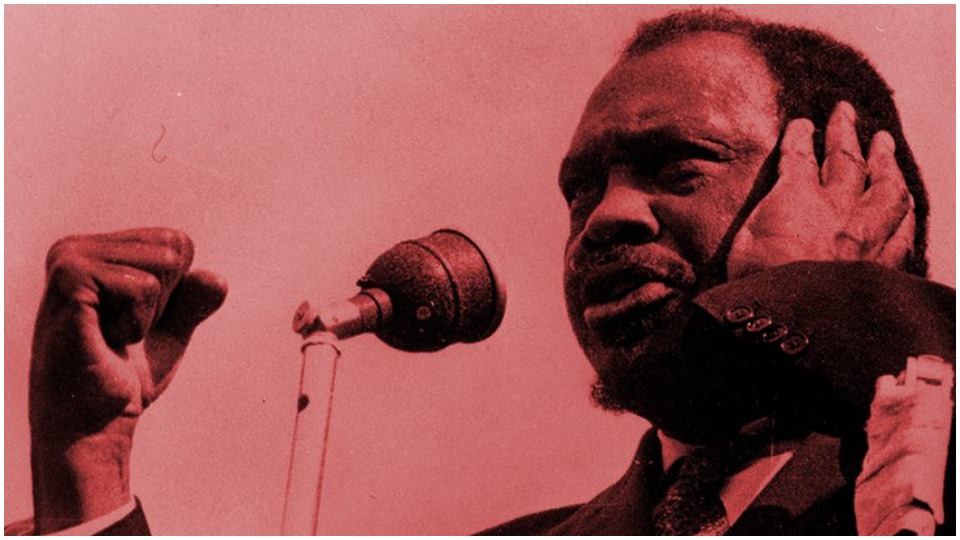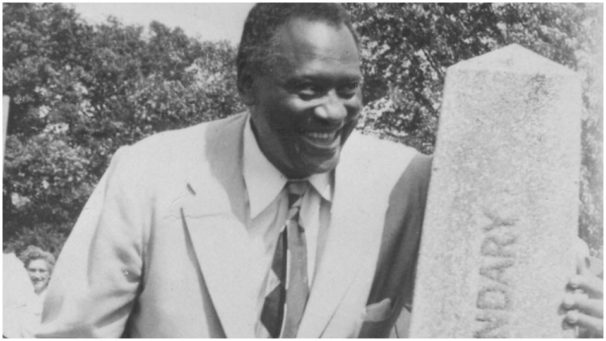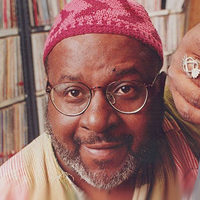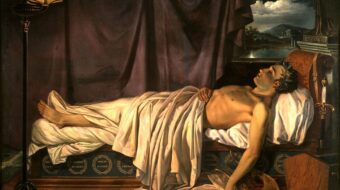
“Robeson may have joined the ancestors but his example, his intelligence, his political acumen remains as a lodestar we would all do well to study—and exemplify”. – Gerald Horne
TORONTO—One of Dr. Gerald Horne’s latest volumes is Paul Robeson: The Artist as Revolutionary. I recently walked into the Parkdale Library in Toronto and saw a huge poster celebrating the great Robeson.
April 9th marked the 120th birthday of Robeson—actor, athlete, political activist, and one of the greatest singers of all time. Thousands of words have been written about Robeson’s interpretation of Jerome Kern’s song, “Old Man River,” but little has been mentioned about his participation in a unique musical collaboration.
In 1941, Robeson joined forces with Count Basie, Richard Wright, Jimmy Rushing, and John Hammond to record a song about the legendary Brown Bomber—Joe Louis. The lyrics of the song, “King Joe,” were written by Wright, the African-American novelist who wrote a book called Black Power in 1954. Hammond, who produced Bessie Smith and Bob Dylan, directed the session. Count Basie and his orchestra provided the music, and Robeson, who was singing the blues for the first time in his life, had blues shouter Jimmy Rushing stand by his side to beat time. Mr. Five by Five, as Rushing was known, was there to keep Robeson’s on the ONE.
Basie, who was holding court at the Imperial Room in Toronto’s Royal York Hotel, explained how he came to work with Robeson. “We were in a club in New York City. I was talking to John Hammond, and Paul (Robeson) was in the same club dancing. I told John, ‘You know, I’d like to do a record with Paul.’ John said, ‘Why don’t you ask him?’ I said, ‘Oh no, you ask him.’ John asked him and Paul said, ‘Gee whiz, I’d like nothing better.’ We did it and, boy, it was a pleasure for me to do the record with him. For me, it’s an item.”
Robeson’s whole life was an item. It has been argued that Robeson, who died in Philadelphia in 1976 at the age of 77, might have been elected president of the United States if he hadn’t been of African ancestry and if he had named the United States, not the Soviet Union, as the center of world freedom.
It may sound far-fetched, but Robeson was qualified for the job at the White House. Besides possessing one of the world’s best bass voices and great athletic skill, Robeson was also a talented lawyer and debater. He had the looks of Harry Belafonte and the charisma of the Kennedy brothers.
For 30 years, from the First World War until after the Second World War, Robeson’s extraordinary achievements kept him in the spotlight. First, he won national fame as a football superstar—the fabulous “Robeson of Rutgers,” an all-time All-American. Robeson was the third black to enroll at Rutgers University.
On graduation, he entered Columbia University Law School, paying his expenses by playing professional football. Realizing there was little future in those days for a black lawyer, he made the stage and concert singing his career. He gained international renown as a concert singer and actor in starring roles on stage and screen.

But the limelight was suddenly switched off. Robeson shocked the American establishment with his advocacy of the rights of African-Americans and his praise for the Soviet Union. His constant involvement in human rights causes and left-wing movements led to his being branded a Communist. His passport was revoked by the U.S. State Department in 1950; he didn’t get it back until 1958. But the boycott of Robeson by the American establishment went further: All doors to stage, screen, concert hall, radio, TV, and recording studios were locked to him. Robeson saw his annual income plummet from $100,000 in 1947 to approximately $6,000 by 1952.
Despite the problems at home, Robeson’s star continued to shine internationally. African-American scholar W.E.B. DuBois, himself a victim of the anti-Communist witch hunt, said in a speech to a Harlem audience at the time: “Paul Robeson is without doubt today, as a person, the best known American on earth, to the largest number of human beings. His voice is known in Europe, Asia, and Africa, in the West Indies and South America, and in the islands of the seas. Children on the streets of Peking and Moscow, Calcutta and Jakarta greet him and send him their love. Only in his native land is he without honor and rights.”
Robeson was also known and loved in Canada. His first Toronto appearance was in November 1929. In 1942, a Toronto critic described Robeson as “the world’s greatest basso since Chaliapin.” On Sept. 25, 1944, he opened in Othello at the Royal Alexandra Theatre with Uta Hagen playing Desdemona and Jose Ferrer as Iago. Later appearances by Robeson in Toronto were often accompanied by controversy.

In a 1946 Massey Hall appearance, he spent half his time speaking about the plight of black people and the other half singing. That July, he joined striking Chrysler workers on the picket line in Windsor, Ontario. He urged them to persist until their demands were met and soothed the strikers with his bass voice. But this was not out of character for Robeson. “The hand of brotherhood…yes, I found that hand in Canada”—Robeson wrote that tribute to Canadians in the mid-50s.
Robeson found brotherhood in Canada even after his death. A group of Torontonians and others endowed a whole row of 60 seats at the city’s Roy Thomson Hall in his memory when it was built in 1981-82. Black stars Harry Belafonte, Lena Horne, James Earl Jones, and British politician Tony Benn were among the project’s sponsors.
The campaign to raise $60,000 to contribute all the Row R seats in Robeson’s name was spearheaded by social worker Leslie Webber, a long-time fan. Toronto photographer Sylvia Schwartz, psychiatrist Granville da Costa, nurse Elizabeth Plummer, and the late Hazel Forbes, a one-time publicity director for the O’Keefe Centre, also served on the Row R Committee.
The project was so successful that, according to Marilyn Michener of Roy Thomson Hall, “We had to go into Row P as well.” Black Theatre Canada and Third World Books and Crafts were among the organizations and people who put up $1,000 for a seat. The late Leonard Johnston, co-owner of the Third World bookstore, explained why his seat inscription read Third World and not his family name. “Paul Robeson spoke for the oppressed people of the world, most of whom are in the Third World. I think it’s important that they honor him and not me as an individual.”
This article originally appeared in People’s Voice.
Like free stuff? So do we. Here at People’s World, we believe strongly in the mission of keeping the labor and democratic movements informed so they are prepared for the struggle. But we need your help. While our content is free for readers (something we are proud of) it takes money — a lot of it — to produce and cover the stories you see in our pages. Only you, our readers and supporters, can keep us going. Only you can make sure we keep the news that matters free of paywalls and advertisements. If you enjoy reading People’s World and the stories we bring you, support our work by becoming a $5 monthly sustainer today.












Comments